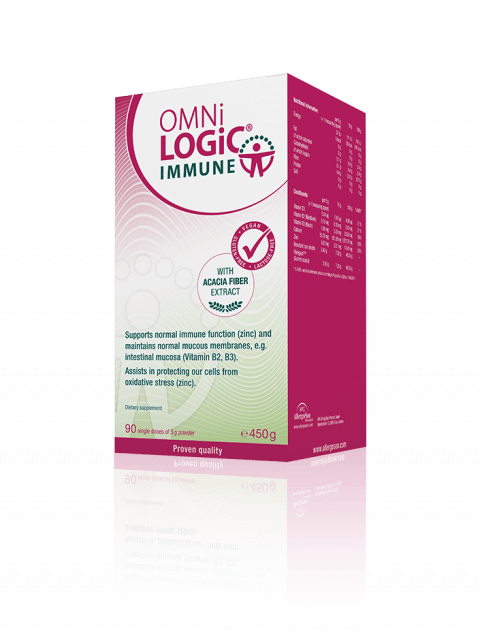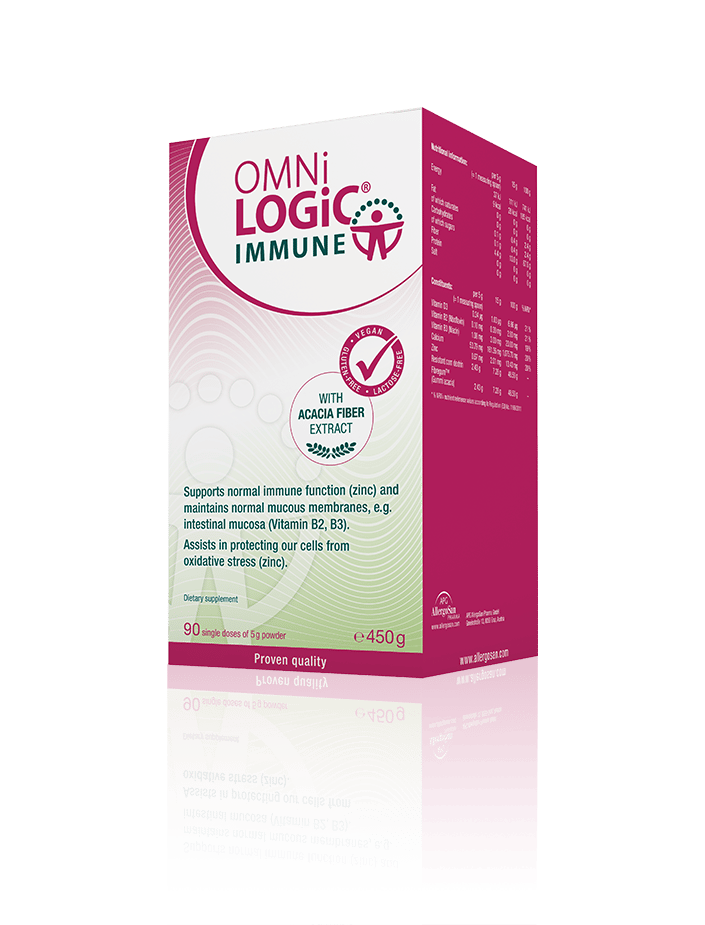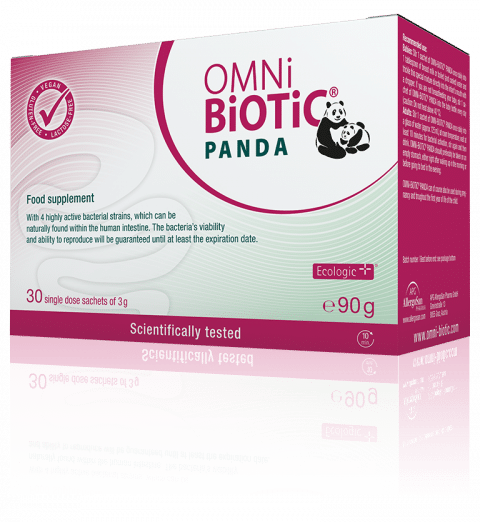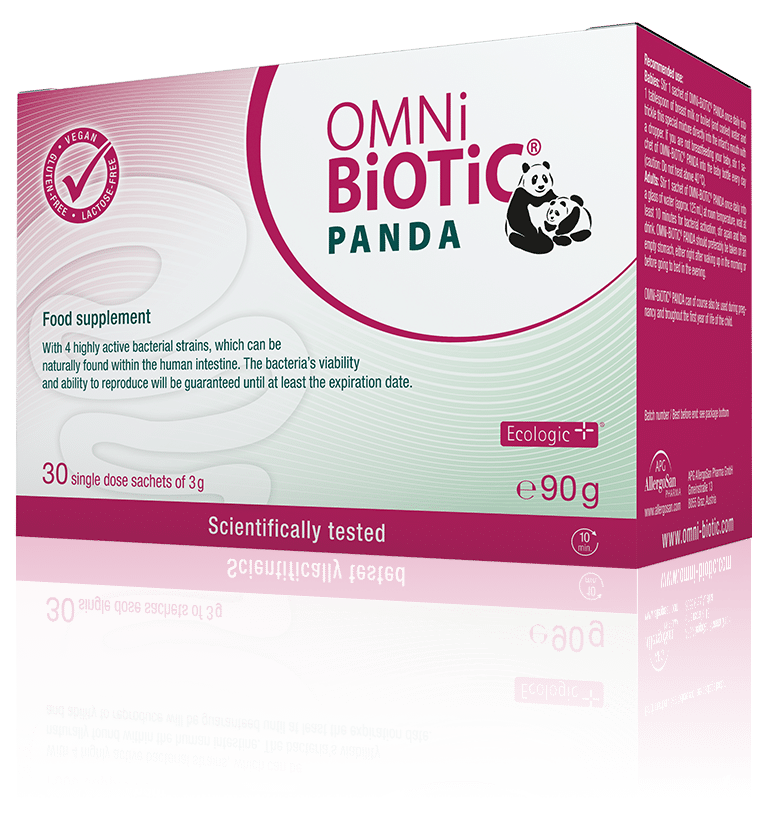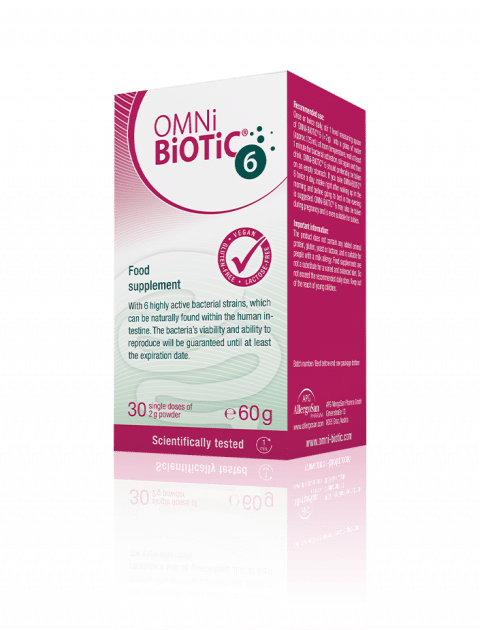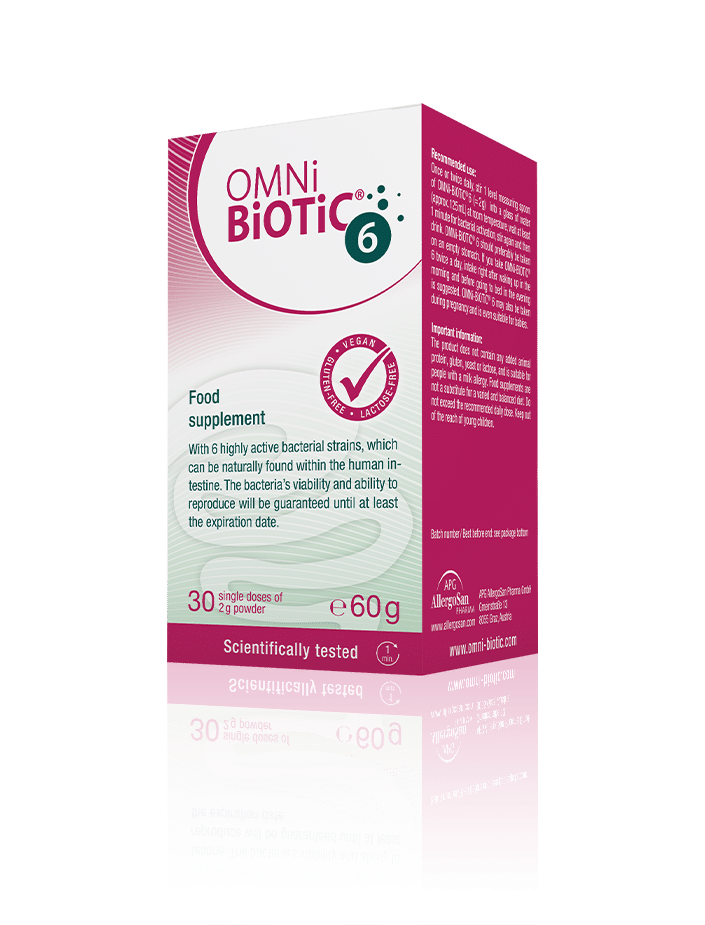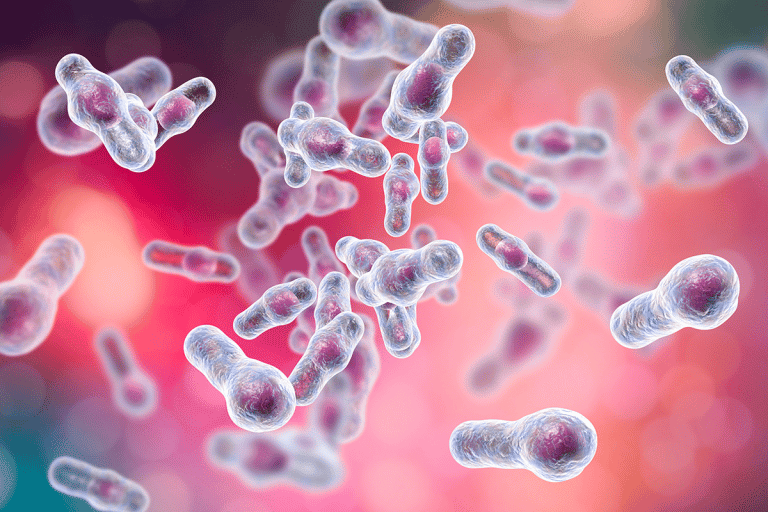
Probiotics help child’s immune system
Protection against mastitis
Unfortunately, not every mother has an optimal gut colonisation. If she is suffering from dysbiosis, an excess of harmful bacteria in the gut, then this can lead to mastitis (an inflammation of the glands which produce mother’s milk). This condition is a reason why many women must stop nursing; in part because the bacteria causing the infection would otherwise be transmitted to the child. The disease, which can oftentimes be very painful, is treated with antibiotics, local therapy, and prolactin inhibitors. The administration of probiotics during the nursing period could on the one hand ward off mastitis by balancing the gut flora and on the other hand prevent or at least limit the number of harmful pathogens which are passed on to the baby via the mammary glands.

Probiotics as a protection for mother and child
Over the counter multispecies probiotics are a sensible option to protect the future mother and her baby from inflammatory processes and the transfer of undesirable germs during the nursing period. The products contain bifidobacteria and lactococci. These resemble the beneficial bacterial colonisation of mother’s milk and so facilitate an immunological balance between Th1- and Th2-cells. Th1-cells regulate inflammatory processes in the body and are amongst other things responsible for the defence against pathogens. Th2-cells assist in the development of B-lymphocytes which in turn are important for the production of antibodies.
Mother’s milk protects from the start
If the mother’s gut flora and therefore also the mother’s milk is “enlivened” with health-promoting bacteria then it has protective effect on the child. The following has been scientifically proven: The risk for childhood obesity sinks, the maturation of the infantile immune system is supported and the risk of later diseases, especially infections and allergies, is reduced. Nursing, with or without enrichment, even has a positive effect on babies’ brain development. Finally, it contributes to the bonding between mother and child. This is because during the nursing process both the mother and child release the hormone oxytocin – the hormone which establishes trust and a feeling of safety.

